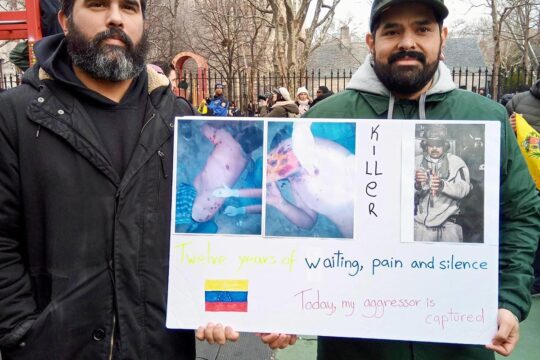When Joseph Kabila stepped aside for Felix Tshisekedi in 2019, it was hailed as the Democratic Republic of Congo's first peaceful handover of power since independence from Belgium.
But on Thursday Kabila faces a vote in the Senate potentially exposing him to prosecution on accusations he conspired with an armed militia to remove his successor from office -- with Rwanda's backing.
Any court case could further destabilise the country's already volatile politics as conflict rages with the M23 militia in the mineral-rich east, experts say.
- Is Kabila untouchable? -
As the first former head of state to become an honorary senator for life, the president of 18 years benefits from immunity to prosecution.
Kabila, 53, still enjoys some influence over Congolese political life, even after a coalition agreement between him and Tshisekedi collapsed two years after his departure from power.
According to his entourage, Kabila has lived abroad at an unspecified location since 2023 at least.
In April, firebrand Justice Minister Constant Mutamba urged the military courts to investigate Kabila for allegedly supporting the M23, which has seized swathes of the eastern DRC with Rwanda's help since 2021.
On the justice ministry's orders, the Congolese army's top prosecutor requested the Senate lift his immunity so the military courts could try Kabila on charges of "treason, war crimes, crimes against humanity".
Stripping that privilege would usually require a two-thirds majority in both the upper and lower houses to pass, according to Raphael Nyabirungu, a law professor at the University of Kinshasa.
With Kabila's People's Party for Reconstruction and Democracy (PPRD) having boycotted the last polls, Tshisekedi's coalition enjoys an overwhelming majority in both chambers.
- Is the evidence sound? -
At the centre of the case is Kabila's supposed support for the M23.
Quoted by the Congolese Press Agency, the army prosecutor said that an opposition figure overheard Kabila and the M23's leader talking in May 2023 about a Rwanda-backed plot to assassinate Tshisekedi.
Under questioning, Eric Nkuba testified that Kabila cautioned against the assassination as it would make a martyr out of Tshisekedi, arguing it would be best to oust him in a military coup instead.
But that "confession" was "extorted by force", said Ithiel Batumike, a senior researcher at the Ebuteli Institute.
- Why is Kinshasa acting now? -
Since the beginning of 2025, Tshisekedi has had to contend with a string of military setbacks at the M23's hands and ongoing peace talks with Rwanda, while dealing with a "crisis of legitimacy" at home, said Batumike.
In recent months Kabila has hinted that he might make a grand return to the DRC and stepped up his criticism of Tshisekedi, who in turn accused his predecessor of preparing an "insurrection".
Kabila announced in the press last month that he would visit the east, without specifying if he would return to a portion controlled by the M23.
No concrete proof of Kabila's return has ever emerged, but since then his party has been suspended while police have raided some of his properties.
- Is it being done correctly? -
Given no former DRC president has ever had their immunity lifted, no clear procedure exists.
Kabila did not answer a parliament summons on Tuesday.
His PPRD has argued that the Senate does not even have the authority to strip him.
That point was echoed by Christine Mwando, a Senator for the opposition Together for the Republic party.
While critical of Kabila, Mwando was adamant that "former heads of state are not subject" to the same procedures as other senators.
If he does go to trial, Mutamba, the justice minister, has vowed his case would be heard by the High Military Court, which has previously tried civilians accused of treason.
- Will this help the DRC? -
Should Kabila be dragged through the courts, it would be "proof" the government has decided "to forge ahead, against all odds, against the constitution and against the law", said Nyabirungu, the professor.
"In that case, then we must fear the worst."
PPRD Deputy Secretary-General Ferdinand Kambere told AFP that Kabila's prosecution was pure "theatre" designed to distract the Congolese people from debates on the conflict and corruption.
For Senator Mwango, "the population is starving, there are no jobs... will lifting the immunity of the former head of state solve everything?"
Batumike warned that prosecuting Kabila could "further radicalise" opposition to Tshisekedi and reignite latent conflicts elsewhere in the country, not least in Kabila's Katanga homeland.


